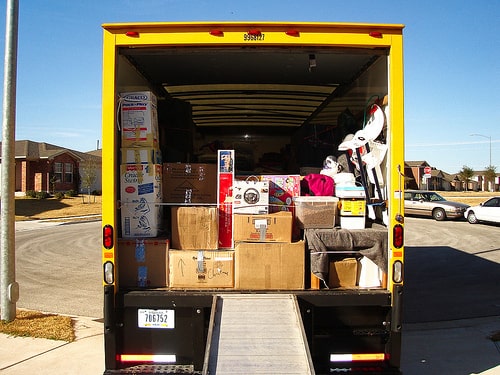Moving and Packing 101

Setting the stage for a trouble-free move starts with a few organizational tips designed to rein-in the details and cover all the bases. Moves don’t always allow as much time as we’d like to have to prepare, but advanced planning eliminates the stress and keeps you on target meeting moving deadlines.
Define Your Approach
There are a number of ways to go about moving, each requiring different levels of effort from you and your family. Hiring a moving company to box-up your belongings and handle the whole move provides the lowest impact alternative for families preferring limited involvement; whereas renting a truck and toting boxes yourself places the greatest amount of responsibility on your shoulders.
Most efforts fall somewhere in-between, delegating a portion of the job to movers, while tackling other tasks yourself. The key is committing as early as possible, so the scope of your moving responsibilities are known in well in advance. That way, time is budgeted effectively and moving milestones are easily met. Whenever possible, start your formal timeline at least eight weeks in advance, checking items off as moving needs are met.
Establishing Timelines
Regardless of how much time you have to set up your move, creating a timeline is a prudent first step toward getting the job done. Use an eight-week schedule to prioritize and break your moving effort into manageable chunks.
Settle on a Mover – Certain times of year tax movers’ availability, so one of your first endeavors is to contact several moving companies to request competitive bids. Draw the line where you see fit, but don’t go with the first carrier you look at. With no other pricing reference points, you may end up paying too much for your move.
Organize Your Paperwork – As packing commences your home organizational schemes begin to break down, making it harder to keep track of important documents. Start a file for your move, including master-lists and timelines, so that you have ready access to information needed along the way.
Evaluate Your Possessions – Despite our best efforts to travel light through life, personal belongings accumulate over time, leading to heavy moving-day burdens. To lighten the load, evaluate your possessions several weeks ahead of your moving date, with an eye toward purging unwanted items. This provides the perfect opportunity to donate unused household goods to charity resale shops, rather than moving them to your new home.
Prepare to Pack – Acquire packing materials with weeks to spare, allowing family members to begin filling boxes well ahead of your moving date. Packing tape, bubble-wrap, and boxes of various sizes comprise basic supplies, while additional specialty items like wardrobes and other moving aids might also be helpful.
Start Breaking Things Down – As the 30-day mark approaches, packing should be well underway and items requiring disassembly should begin to hold places on your moving radar. Waiting until the last minute to take apart furniture and other items clogs the flow on moving day, slowing down your move.
Account for Perishables – Stop grocery shopping a couple weeks ahead of moving day, giving the family plenty of time to clear out the freezer and pantry of perishable foods.
The final week of your moving timeline requires flexibility to respond to pop-up concerns. Don’t pencil-in significant responsibilities for the home stretch – you’ll have your hands full anyway. Having followed your timeline, ironing out a few final details at the eleventh-hour is easily accomplished.
Photo via (cc) Matthew W. Jackson